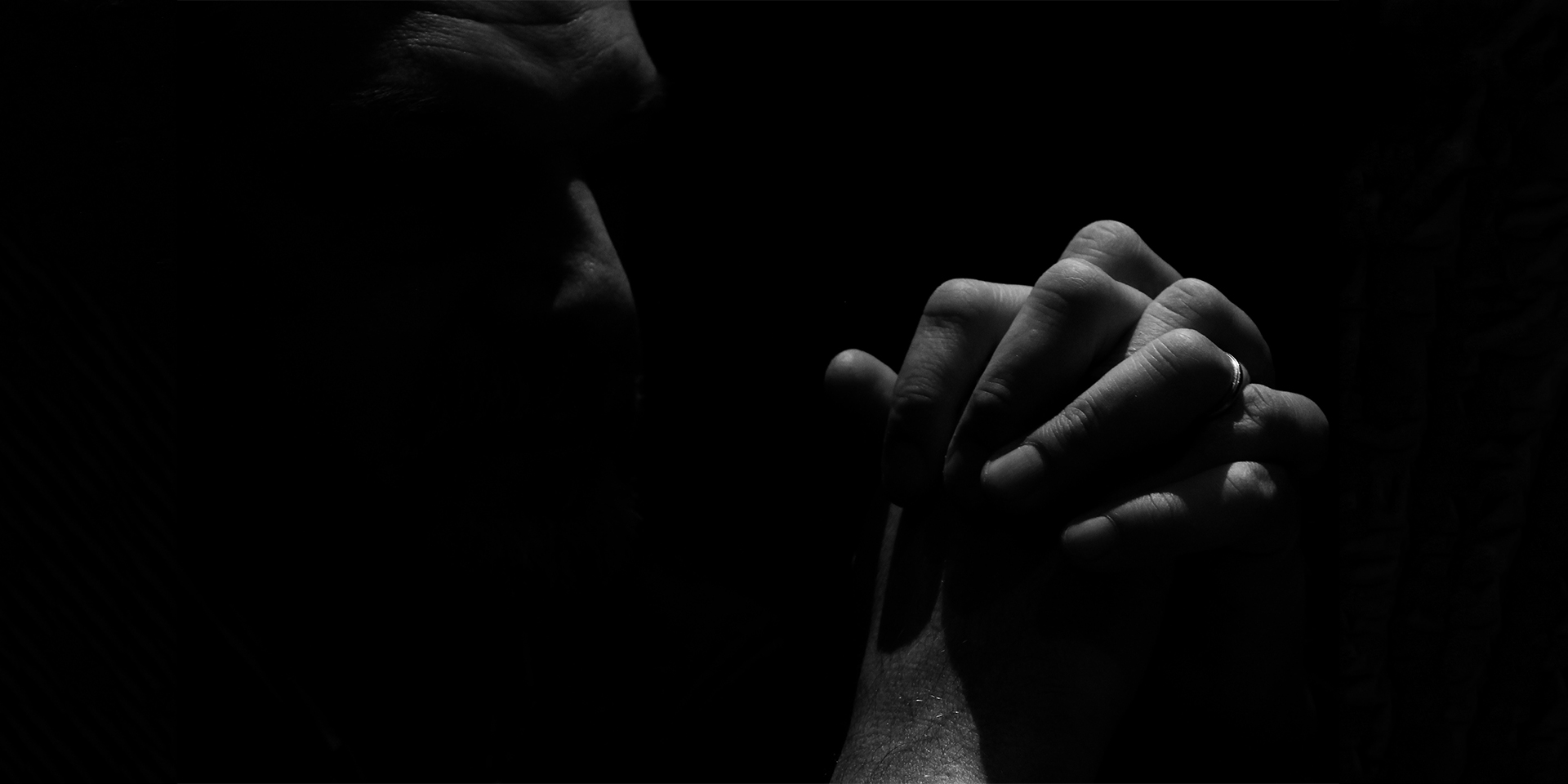Contemplating a God who forgives any sin, no matter how monstrous, can be a stumbling block to those who believe there must be some reasonable limits to forgiveness. But it is also a reason for hope for those who might otherwise feel too sinful to seek Him.
“I know from this book that God can love a sinner like me”. These are the words which Lutheran pastor Henry Gerecke recounts being greeted with by Field Marshal Wilhelm Keitel, whom he found reading the Bible in his prison cell in Nuremberg.
Gerecke confesses that the scene left him speechless and that his first thought was that Keitel was trying to play his last card as best as he could in a trial that could not end well for him. The months spent close to the Nazi leaders imprisoned in Nuremberg would reveal many other surprises, emotions, and questions that Gerecke had not encountered before, although he had rather extensive experience in ministering to prisoners.
A God who forgives—even in the 11th hour, even the perpetrators of genocide?
On November 20, 1945, the trial of the Nazis in the first echelon began in Nuremberg, Bavaria’s second-largest city. The four great allied powers, the USA, Great Britain, the Soviet Union, and France, had established the National Military Tribunal, which was to try 24 defendants, representatives of the Nazi elite.
Of the 24, only 21 appeared in court (metallurgist and arms manufacturer Gustav Krupp was not tried, due to his age and health; Martin Bormann, the Nazi Party secretary, was tried in absentia (being last seen after the death of the Führer while trying to escape from Berlin), and Robert Ley, the leader of the German Labour Front organisation, committed suicide on the eve of the trial.
As head chaplain of the Nuremberg prison, Gerecke provided assistance to the 15 Protestant defendants, while the Catholic chaplain Sixtus O’Conner was assigned to attend to the spiritual needs of the Catholic prisoners. In the 11 months prior to the end of the trial, more than half of these war criminals asked God for forgiveness for their sins against Him and against humanity, and returned to the Christian faith of their ancestors, says Gerecke, in a report that presents a brief history of the conversion of those whom he pastored.
Describing the night he walked 10 times to the place of execution with the prisoners sentenced to death by hanging, the pastor recounts that Joachim von Ribbentrop, the Reich Foreign Minister, parted from him with the words: “I’ll see you again”.
Pastor Gerecke’s report was published in The Saturday Evening Post magazine on September 1, 1951, five years after the end of the Nuremberg Trials. The world had yet to hear this story, but not because Gerecke was reluctant to tell it.
It had been years since the chaplain had asked the US military for permission to share his experience with his fellow Americans, but he was asked to wait, probably because of the public’s strong feelings of repulsion towards the Nazis. Many people did not even know that these first-echelon Nazis had received religious assistance. Many would have believed that they did not even deserve it.
Gerecke himself confesses the reluctance he felt, in the beginning, regarding the authenticity of the prisoners’ conversion, but also the inner struggle he had regarding taking the job of chaplain in Nuremberg.
To those who say that these confessions of faith were generated by the fear of death, the pastor answers that, from the experience of his years of service, he knows that many people find their way to faith in borderline situations. One of the proofs that the religious interest was not feigned, he believed, was precisely the fact that the Nazis who received as punishment a relatively long detention continued to attend the services in the prison chapel.
Rumours that older American officers would be allowed to return home so unsettled the defendants that they wrote a letter to Gerecke’s wife in Missouri, which was signed even by those who did not participate in the religious services at the prison chapel. In their message, these Nazi leaders begged Mrs Gerecke to allow her husband, whom she had not seen for two and a half years, to remain with them until the end, reasoning that it would be impossible for anyone else to break through the spiritual walls raised around them.
“I have been criticised for offering my hand to these men. Don’t think it was easy for me”, says the pastor, confessing that the news of his transfer to Nuremberg shook him very much and that he needed time and prayer to accept this mission. Two of his three sons had been wounded in the war, and he had seen with his own eyes the evidence of Nazi cruelty after the release of the prisoners from the Dachau camp.
Before deciding what to do, the pastor took several days in which he prayed more than he had ever done before, until he could see in those men nothing more than lost souls, for whom a last effort was worth it.
Mercy for the merciless
The significance of the Nuremberg trials ”was vital”, writes journalist Ralf Bolsen, emphasising that this was the first time in history that states with different forms of government brought the representatives of a defeated enemy state to justice. Even the formulation of the charges was a first: the concept of crimes against humanity was born during this trial, says international law professor Christoph Safferling.
The accused should have received spiritual assistance, according to Article 16 of the Geneva Convention, but the Allies did not trust the chaplains of the German army, so, for the first time in history, the chaplains of the US army were called to serve the enemy, says Tim Townsend in an article for The Washington Post.
“Should anyone who commits widespread evil be offered a path to forgiveness?” This was the question that those who organised the Nuremberg Trials had to face, says the author, who sees in this enormous trial the reflection of the great struggle between good and evil.
According to Gerecke’s testimony, some prisoners expressed their gratitude to the nation that, most likely, would punish them in a memorable way for their crimes, but that was still thinking about their spiritual well-being.
After publishing his testimony, Gerecke received hate mail and threats from Americans who found the concern for those responsible for the death and maiming of millions of their fellow human beings outrageous.
Interacting with the artisans of a bloody war did, in fact, raise questions that were not easily answered, Townsend says. Could attempts to understand the evil committed on a large scale open a door to its justification? Do those who designed the monstrous gas chambers deserve empathy, compassion, and spiritual counselling?
The answer that Gerecke and O’Connor gave revealed their perspective on relationships with fellow humans and with God. They did not try to minimise the harm done, but they believed that the perpetrators of genocide remained part of a single human community in desperate need of forgiveness, says Townsend. He notes that “once they recognised the Nazis as simply men, ministering to them became a matter of attempting (…) to return mass murderers from darkness to the good of their own light.”
“Nothing good dwells in me”—the sins that set us apart (or so we think)
Even though it was published in one of the most influential and widespread magazines of the time, the story told by Henry Gerecke remained in the shadows, says Christian journalist Subby Szterszky. On the one hand, people may have little interest in this story because of our culture’s scepticism regarding the authenticity of conversion, especially if it happens at the 11th hour.
A more significant reason, however, could be related to the sense of merit in which we are immersed. Even Christians, who hold that God’s grace can forgive all sin and that we are equal before God’s judgement, have become rooted in a meritocratic mentality. Therefore, many resent the idea that forgiveness and salvation might be available even for the perpetrators of abominable acts, Szterszky says.
As the journalist points out, we tend to classify sins according to their severity (distinguishing between the usual or acceptable ones, the serious ones, and those that go beyond the limit of forgiveness).
When we consider the perpetrators of the sins in the latter category to be a special, subhuman category for whom we should have no compassion, we reveal a limited perspective on the nature of evil, Pastor David Asscherick says. It’s comfortable to look at the brutal criminals of history and think of them as diabolical, non-human, a universe away from our “normal” lives and sins.
But what kind of difference is this that makes us feel all the more relaxed the more we amplify it, the pastor wonders. Is it one that is related to our nature or the degree of sliding into the pit of sin?
The Bible has a very clear answer for this: “For all have sinned and fall short of the glory of God” (Romans 3:23); “All have turned away, they have together become worthless; there is no one who does good, not even one” (Romans 3:10-12).
Asscherick recounts that he often asks his listeners what they would do if they were ever presented with a button that would instantly end all forms of evil by simply pressing it. Most people’s answer is that they would press that button without hesitation. While this seems like the right answer, it’s definitely wrong, the pastor says. Too few realise that once this imaginary button is pressed, they will disappear along with the evil. This is because sin is not a problem that exists outside of us—it is glued to us, nestled in our very hearts.
God’s plan to eradicate evil from the universe is centred on this key element of eliminating evil from the human heart. One day, God will destroy evil in the universe. He is the only one who has the power and wisdom to do this.
Until then, however, we need to realise, just like the apostle Paul, that our hearts are a territory occupied by the enemy (“For I know that good itself does not dwell in me, that is, in my sinful nature. For I have the desire to do what is good, but I cannot carry it out” says Romans 7:18) and that we need a new heart and a new Father, to finally receive a new home, Asscherick says.
“The Scandal of Grace” | A God who forgives the unforgivable
Our society believes that it is a scandalous idea that good people who die without having a saving relationship with Jesus Christ are lost. Christians, however, believe something even more scandalous: that even the most brutal criminal who ever lived can be saved, provided they seek divine forgiveness and experience repentance, Professor Trevin Wax says.
If this scenario bothers us, it is only because we have not understood how radical the message of the Gospel is, Wax says. The Bible teaches us that the problem of sin is worse than we could ever understand, and, at the same time, that the solution God has provided for sin, His grace, is better than anything we could ever deserve.
“It isn’t the magnitude of the crimes, but the magnitude of God’s grace that matters for salvation,” the professor says.
The often-offensive truth in Christianity is not that people like those in Hitler’s entourage can be saved, but that the Son of God was willing to die to bring them to Himself, Christian author Chad Bird says. A just God cannot leave sin unpunished, but it is mercy that underlies a transfer that only an unearthly love could have imagined: Jesus was “pierced for our transgressions, he was crushed for our iniquities” (Isaiah 53:5), “‘He himself bore our sins’ in his body on the cross” (1 Peter 2:24), so that His blood “purifies us from all sin” (1 John 1:7).
His death, which made forgiveness possible by freeing us from the penalty of eternal death, nullifies any human attempt to differentiate between those who do or do not “deserve” to be forgiven. Like repentance, forgiveness is a gift in its entirety, in which there is no trace of human worthiness.
“All of us are worse than we think,” Professor Joe Rigney says. At the cross, God showed our minds, numbed by sin, the true face of evil. But He also showed us the true face of goodness, so that no one need ever fear that they have fallen into a hole too deep for His love to save.
Carmen Lăiu is an editor of Signs of the Times Romania and ST Network.



















